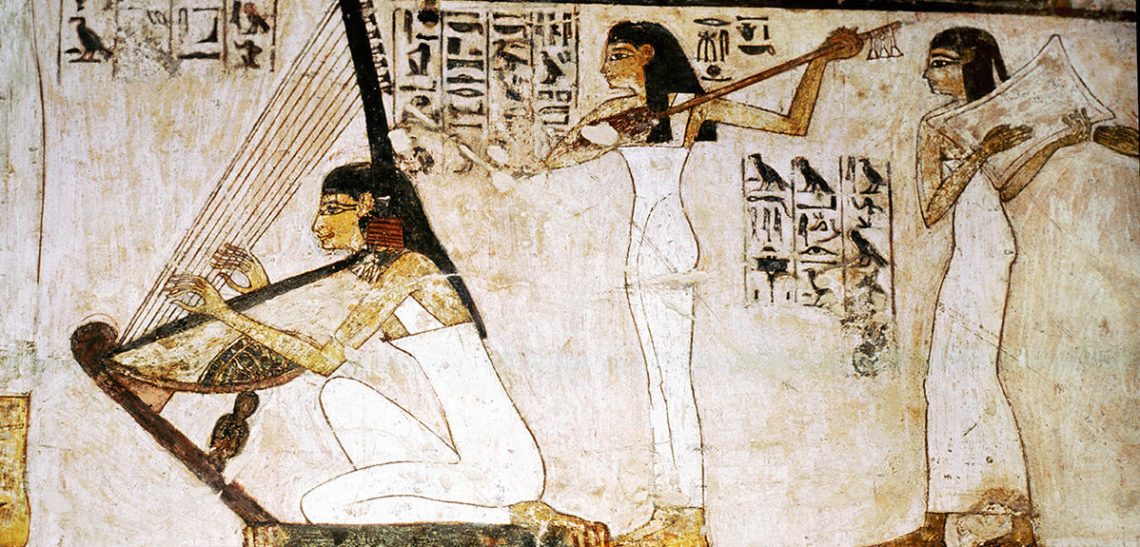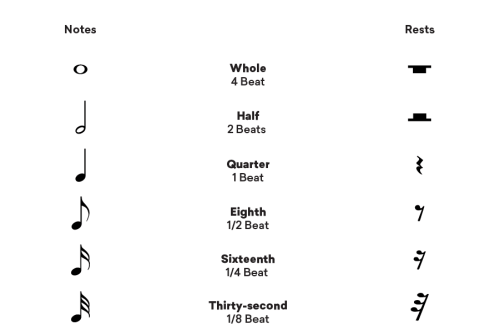
Music of ancient peoples
Contents
Despite the technological imperfection of instruments and the lack of means of artificial sound reproduction, ancient civilizations could not imagine their existence without music, which merged with the daily life of people several thousand years ago.
However, only grains of the heritage of the ancient peoples have come down to us, and at best we can speculate about it only from literary sources. However, the musical art of Sumer and Dynastic Egypt, due to the catastrophic lack of such sources, is almost impossible to recreate.
And yet, archaeologists have brought into modernity a small part of the departed eras, and musicians, based on historical descriptions, are trying to fill in the gaps in the cultural chronology of mankind with approximate ideas. And we invite you to get to know them.
Mitanni (XVII-XIII centuries BC)
The Hurrian hymns are a whole collection of songs written on small clay tablets, but none of the 36 such tablets has survived completely. At the moment, they are the oldest surviving musical monuments, the creation of which is attributed to 1400-1200 BC.
The texts are written in the language of the Hurrians, the progenitors of the Armenian people, who lived on the territory of modern Syria, where they founded their state of Khanigalbat or Mitanni. Their language turned out to be so little studied that the interpretation of the words of the hymns is still a subject of controversy, as well as music, since experts give different versions of the decoding of musical cuneiform.
Ancient Greece (XI century BC – 330 AD)
Music in Hellas played a huge role, in particular, it was one of the main components of the dramatic narrative, since at that time the theatrical production, in addition to the actors, included a choir of 12-15 people, which complemented the picture with singing and dancing to the accompaniment. However, the plays of Aeschylus and Sophocles have lost this element along the way in our time, and it can only be replenished with the help of reconstruction.
At present, the entire ancient Greek musical heritage is represented by only one composition, known as the Epitaph of Seikila, dated to the first century AD. It was carved on a marble stele along with the words, and thanks to the strength of the material, the song has come down to us in its entirety, making it the oldest completed work.
The only illegible place in the text is the caption: either Seykil dedicated the composition to his wife, or he appeared to be the son of a woman named “Euterpos”, but the words of the song are quite clear:
As long as you live, shine Don’t be sad at all. Life is given for a short moment And time demands an end.
Ancient Rome (754 BC – 476 AD)
In terms of musical heritage, the Romans surpassed the Greeks – one of the outstanding supercultures did not leave musical records at all, so we can form ideas about it only on the basis of literary sources.
The musical arsenal of Ancient Rome was replenished through borrowings: the lyre and kithara were borrowed from the Greeks, more skilled in this craft, the lute came from Mesopotamia, the bronze Roman tuba, an analogue of the modern pipe, was presented by the Etruscans.
In addition to them, the simplest wind flutes and panflutes, percussion tympans, cymbals, an analogue of cymbals, and crotals, the progenitors of castanets, as well as a hydraulic organ (hydravlos), which surprises with its complex design, unusual for that era, are used, however, all those or Hellenes.
Nevertheless, some Christian musical monuments can also be attributed to the ancient Roman era, no matter how blasphemous it may sound in relation to the latter in a series of difficult relations between the fallen state and the new religion, but only in terms of chronology.
Ambrose of Milan (340-397), Bishop of Milan, still found the times of the emperor upon the fact of a united country, but his works with unconditional cultural value should hardly be associated with Ancient Rome, especially with its heyday.





